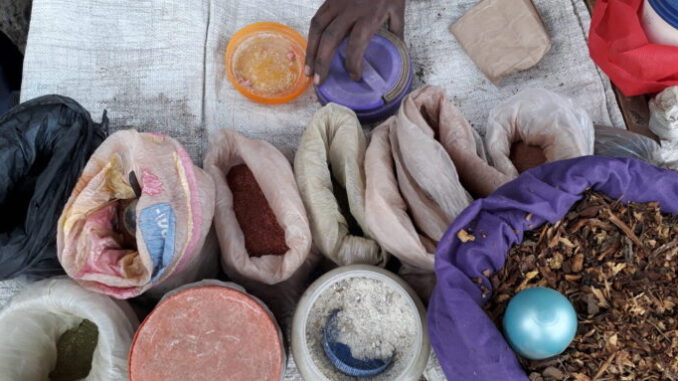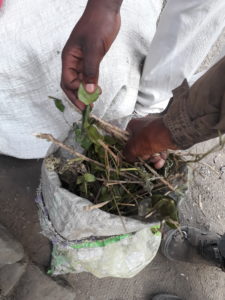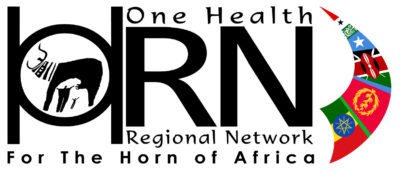
By Dr Olivia Howland
A paper from Olivia’s recent study of indigenous medicines in Kenya has just been published in the International Journal of Equity in Health.
Indigenous medicine is a classic One Health problem because many of these curatives are gathered from the environment to heal humans and animals, therefore spanning all three elements of One Health. Research was conducted over six months in 2019 in one rural and one urban location in Kenya, and the paper explores how people make choices regarding medicine for themselves and their livestock.
As an anthropologist, Olivia used ethnographic methods (observations and conversations) alongside other qualitative methods (focus group discussions and key informant interviews) to gather narrative data on how, when and why people use medicines for themselves and their animals.  Participants discussed herbal medicines, spiritual healing, biomedicine and alternative medicine as some of the forms of healthcare they accessed. Much discussion centred around the ideas of ‘chemicals’ being in biomedicines, and the fears of these. Participants were fearful of using anything ‘chemical’ on themselves or their livestock, and there was some knowledge of AMR. A lack of literacy in rural communities meant that many farmers preferred to use herbs to heal livestock as they were afraid to overdose their livestock using conventional veterinary medicines. Furthermore, many participants reported issues of ‘fake’ medicines. Kenya’s drug market has had issues of counterfeit medicines being sold as genuine, and this fear impacts decision making. Many participants preferred to use herbal or indigenous forms of healing as they perceive these as innocuous and often said that it was impossible to overdose on them, however this also depended on the severity of the illness they or their animals were suffering.
Participants discussed herbal medicines, spiritual healing, biomedicine and alternative medicine as some of the forms of healthcare they accessed. Much discussion centred around the ideas of ‘chemicals’ being in biomedicines, and the fears of these. Participants were fearful of using anything ‘chemical’ on themselves or their livestock, and there was some knowledge of AMR. A lack of literacy in rural communities meant that many farmers preferred to use herbs to heal livestock as they were afraid to overdose their livestock using conventional veterinary medicines. Furthermore, many participants reported issues of ‘fake’ medicines. Kenya’s drug market has had issues of counterfeit medicines being sold as genuine, and this fear impacts decision making. Many participants preferred to use herbal or indigenous forms of healing as they perceive these as innocuous and often said that it was impossible to overdose on them, however this also depended on the severity of the illness they or their animals were suffering.
The study is important because it tells us a lot about how people in contemporary Kenya perceive different types of medicine, and how they make decisions about what type of medicine to use both for themselves and their livestock. The paper is available here.
